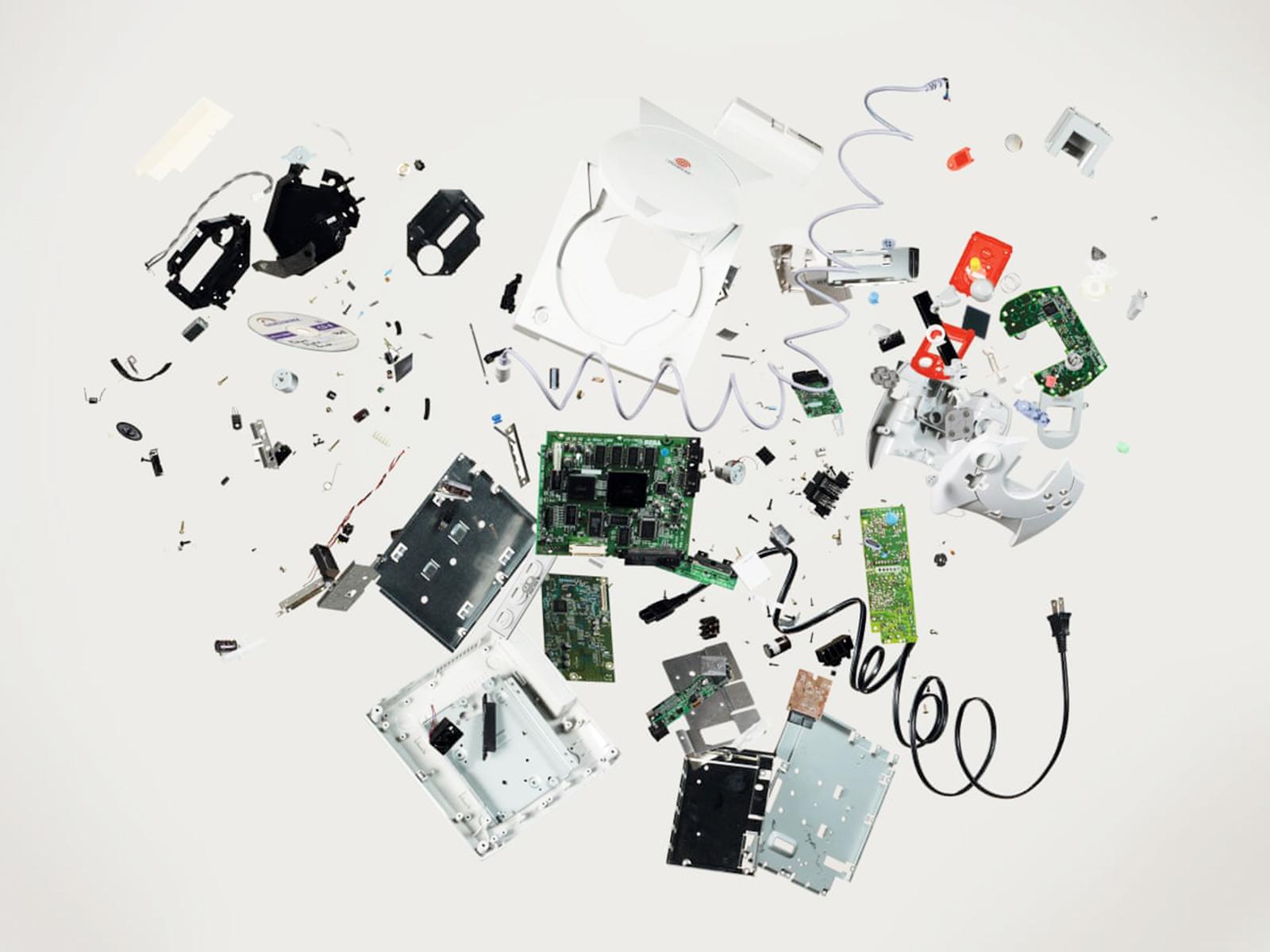Digital devices generally contain fewer parts than mechanical ones. For example, a toaster from the 70s has more parts than a virtual reality headset from 2013. To find out, there's only one way to do so: by opening the device.
In 2013 the book 'Things Come Apart' by photographer Todd McLellan was published. In that book he recorded all kinds of mechanical devices that he had dismantled, such as (analogue) telephones, clock radios and typewriters.
He recently made a 2.0 version in which he also took apart digital devices and rphotographed all parts thereof. This includes, for example, a smartphone, a laptop and a 3D printer. The photos are very similar to the work of iFixit, which makes repair manuals based on open devices and makes highly detailed photos and videos.
In our programmes, Waag wants to unravel technology together with users. A book like that by McLellan can certainly help with that. It shows all components of a device."When the first book came out, the idea of repair technology was very new," McLellan says. "There weren’t many people doing it. Now people seem to want to get back to understanding and repairing what you have, which has been great."
"When I was taking apart a product [for the first book], I could understand how it worked – I’d press a button and you’d see it move a mechanism," he says. With the new book, he was exposed to "minuscule transistors, resistors, and capacitors" that he couldn’t remove without them "looking like dust" on camera. Yet, McLellan argues, just as tech has evolved, so has our ability to fix it.
"I think most people should give it a shot," he says. "People are evolving to learn how to repair things. The knowledge is opening up and there are companies, like circuit board recycling places, that there weren’t before. There are clinics where you can repair screens and exchange certain components."
When asked what the message is that he wants readers to get out of his book, McLellan's answer is simple. "I think it's about understanding your daily life," he says. "Or at least think about it."
Things Come Apart 2.0 is published by Thames & Hudson (£14.95).
